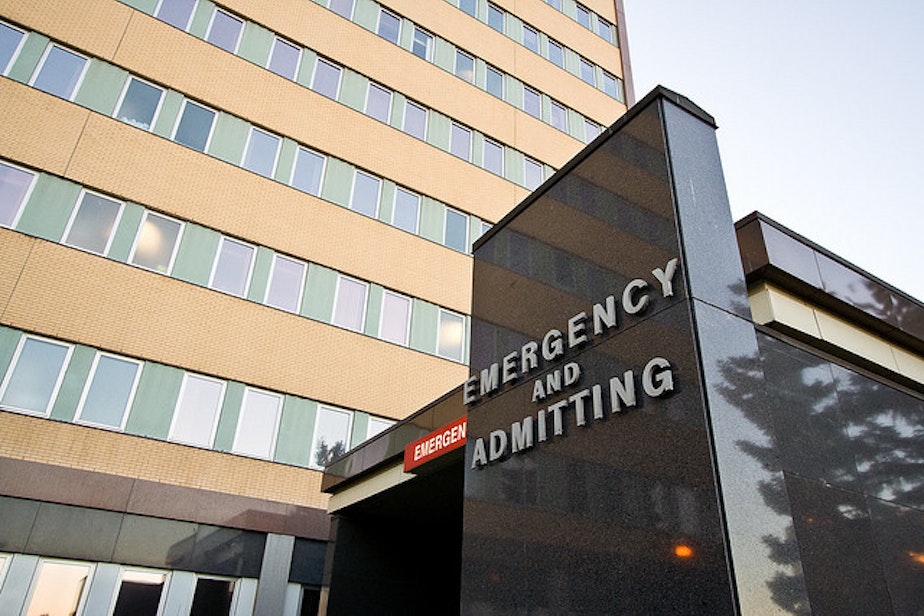State Supreme Court Considers Constitutionality Of Psychiatric Boarding

Parking mentally ill patients in the emergency room while waiting for treatment is a common practice, but also controversial. Psychiatric boarding, as it's known, used to be the exception. But in the last six years, the number of patients who've experienced it has nearly tripled. Now the state Supreme Court is considering whether boarding is constitutional.
Last July, a Pierce County court ruled that boarding violated state law and was unconstitutional. Jay Geck, lawyer for the state Department of Social and Health Services, wants the high court to overturn that ruling. He told the court on Thursday that the alternative to boarding would be to send patients home where they could potentially harm themselves. Geck says patients are safer in the ER because it’s equipped to handle them.
“We know in a hospital you have a nurse, you have an emergency room physician, you have consultation with a designated mental health proceedings. Within two, three days these people were transferred,” he said. “This is the beginning of stabilization.”
The problem is where to transfer them; the number of beds and staff in psychiatric facilities have shrunk over the years through budget cuts.
Jennifer Sweigert represents the 10 patients who were detained in Pierce County in February, 2013. She says psychiatric boarding violates the patients’ civil rights. “Civil commitment for purposes of providing mental health treatment is only permissible so long as that treatment is actually provided. The recipe is simple: no treatment, no commitment,” she said.
Sponsored
Under state law, patients are supposed to get mental evaluation and treatment within 72 hours. But in reality, a patient is often stranded in the hospital for days before a psychiatric bed opens up.
Earlier this year the Legislature approved $7 million to add more beds in the system. Pierce County, for example, will get 16 new beds next month.
But some advocates say that’s not enough to handle the backlog. And for the detainees at the center of Thursday’s case, the additional beds come more than a year too late.

